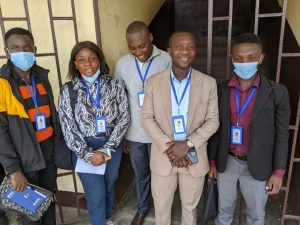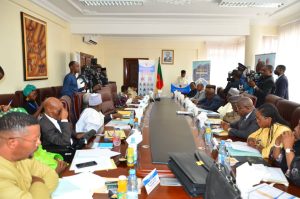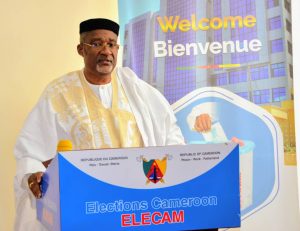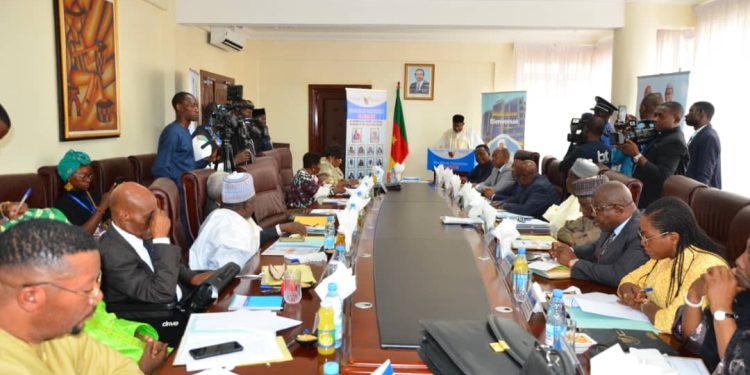Story, Louvier Kindo Tombe
Going by the words of the minister of Territorial Administration, Paul Atanga Nji, the elections of senators was a huge success.
“The elections took place in all the electoral constituencies in the country in an atmosphere of peace and security,” minister Atanga Nji said in a press conference shortly after the close of the polls on March 12.
Besides the MINAT boss, most of the election observers who spoke to News Upfront validated the thesis that the polls were free, fair and transparent.
“I think we are here to witness democracy in Cameroon,” says Nigel Holmes, international observer from the British High Commission in Cameroon.

The electoral board of Elecam was more than satisfied with the work done by all the different stakeholders in the electoral process before, during and after the polls. Enow Abrams Egbe congratulated his peers for a job well done.
Successful Preparation

The success of the elections was thanks to hardwork and commitment from those involved. Elecam members did not leave any stone unturned at any point in the electoral process.
On January 13, 2023, President Paul Biya convened the electorate, the board members of Elecam immediately set to work, visiting their respective regions to set the ball rolling by carrying out all relevant verifications and proximity checks that were deemed neccesary.
In their different sessions, the board chair, Enow Abrams Egbe did not cease to galvanise his collaborators into action, recalling the importance of the elections to the democracy of the republic and the image of the structure.

“We must maintain the same republican spirit, respect of the laws and be guided by a sense of general interest,” Enow Abrams said in one of the sessions as of right.
The laws binding elections in Cameroon were respected to the fullest and all deadlines were met. The sessions as of right held accordingly, the period to receive candidacies were respected including the selection process, the list of candidates were published on time, campaigns launched within timeframe, and the polling stations set up, opened and closed according to the law, with all neccesary materials including those for virtually impaired persons.
“I am pleased that Elecam thought of us the virtually impaired persons this time, we had materials in brail, and that is an innovation,” Coco Bertin, promoter of club CJARC, a civil society organization said during the traditional meeting between all the stakeholders involved in the electoral process.
During the meeting, Elecam was keen on the fact that all those involved in the process must sign the code of good conduct which they did.
Challenge
The March 12 senatorial elections was a huge challenge for Elecam.
First, it was the first election to be organized by the new board after their mandates were renewed by the President of the Republic, Paul Biya. New members were brought in and they barely had time to familiarise themselves with what is expected of them.
“The new team succeeded,” a keen observer of the political scene told this reporter.
Another big challenge was the fact that for the first time, regional councillors and assembly members were to take part in the polls as voters.

Everything was well organised and it actually proved that decentralisation in taking shape in the country.








